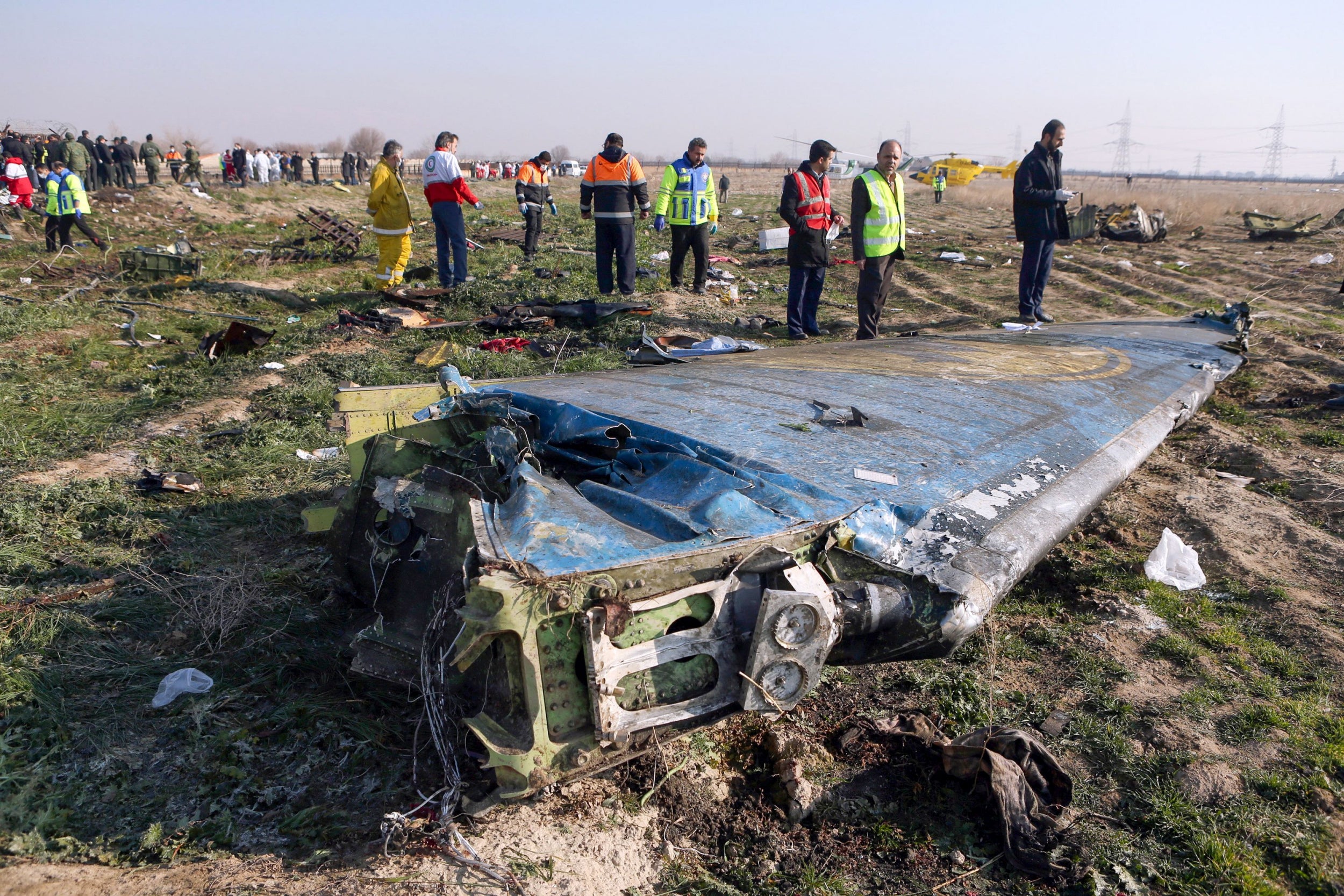Iran’s admission of downing a passenger plane has put Russian propagandists in a tight spot
It is five and a half years ago that flight MH17 crashed over the Donbass. Evidence pointed to the Russian military. But any parallels with last week’s air crash ended when Iran admitted its guilt

A revenge missile strike. A mysterious plane crash. Three days deflecting blame. Excuses on black boxes. Bombshell evidence from western intelligence. Finally, an admission of guilt. This was an extraordinary week – and even more so when looking on from the perspective of Moscow.
The downing of a passenger jet with a surface-to-air missile amid military tensions had obvious parallels in these parts. It is five and a half years since Malaysian Airlines Flight 17 crashed over the Donbass, with nearly 300 lives lost. A credible body of evidence links the Russian military to the disaster.
But the similarities with MH17 ended abruptly on Friday, with the Iranian admission of its “human error” in bringing the plane down.
There would be no “Carlos the Spanish air-traffic controller” or other malignant conspiracy theory that undermined the grieving families. Instead came repentance and declarations of intense sorrow. Distraught Iranian commanders claiming to be being on the edge of suicide.
Iran needed three days to come clean. The Kremlin is yet to admit its role. Whether it ever will in the long term is anyone's guess. What is clear is in the short term, the Iranian U-turn put Russian propagandists in a tight spot. Initially, Moscow’s reaction to the crash followed the lines of MH17: denial, deflection of blame, undermining the evidence. State media backed Tehran to the hilt. RT, Izvestia and others talked about an “information campaign” directed from Washington. Officials issued strongly-worded statements in support of Iran. Accusations directed at Iran by the US, Canada and Britain were “bombastic, baseless statements”, Sergei Ryabkov, Russia’s deputy foreign minister, said on Thursday.
Since Friday, Russia has contorted itself to a new reality. Most loyal outlets have gone about reporting the missile strike in the context of American aggression – and invariably without a mention of MH17.
On Monday, Yevgeny Popov, the host of 60 Minutes, a lunchtime chat show, seemed to sum up the approach: “Iran brought the plane down, it should answer for this. But today we want to discuss something else: the fact that the United States is egging Iran on, trying to destabilise the country every day.”
Russia’s opposition figures have naturally preferred a different emphasis — comparing outright the Kremlin’s handling of MH17 to the apparently more open nature of the Iranians. The “hellish Ayatollahs” were “much smarter, farsighted and decent than Putin” wrote Leonid Volkov, aide to opposition leader Aleksei Navalny. There were dozens of posts offering similar opinions.
But the most interesting comment of all came from Margarita Simonyan, the uber-loyal and cynical editor of Kremlin-funded RT. In a cryptic series of Twitter messages, Ms Simonyan talked about “two religions” of thought about how a major power should comport itself "when it messed up."
“Some consider that the country should disappear into a deaf world of denial – this is the choice of most … great powers including our own,” she wrote. “Another religion says do as Iran did. On a human level, I prefer the second approach. In my system of coordinates, Iran was a (real) man.”
Were Ms Simonyan’s tweets a cri de couer, a sign that Russia too might soon follow Iran’s lead? A resolution her own channel would move from its default of cynical manipulation and post-truth communications? That seems a stretch. Most likely, the event will instead serve to galvanise and professionalise the disinformation efforts of both countries.
In a broader scheme, the approaches of both countries to truth still share more similarities than they do differences. After trying to ban the Internet, Tehran is now belatedly embracing the underworld of social media while Russia showed the way. Russia has embraced proxy war while Iran showed the way. Both countries are fixated by perceptions at home.
In this case, Tehran initially tried to follow the Moscow script – but realised it couldn't because it didn’t cut it domestically. Their U-turn came not so much because of the international opprobrium but because of a fear of a major uprising in Iran.
For Russia, a major domestic test will come this March, when three of its citizens will face an international trial in absentia for their role in bringing down MH17.
Yours,
Oliver Carroll
Moscow correspondent
Join our commenting forum
Join thought-provoking conversations, follow other Independent readers and see their replies
Comments